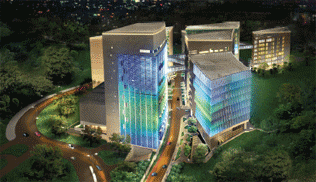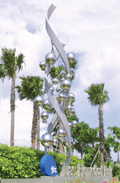As a thriving location with a proven track record in pharmaceutical manufacturing, Singapore has built up world-class capabilities throughout the drug-making process. Yeoh Keat Chuan, of Singapore\'s Biomedical Sciences Group, explains how his country aims to strengthen its capabilities to become the biomedical centre of Asia.
Singapore is a thriving pharma location with a proven track record for pharmaceutical manufacturing. Companies with significant operations in Singapore include GlaxoSmithKline (GSK), Merck, Novartis, Pfizer, Sanofi-Aventis, Schering-Plough, Wyeth and Kaneka.
At the launch of Singapore's Biomedical Sciences (BMS) initiative in mid-2000, the goal was set to double the BMS industry's annual manufacturing output to S$12bn by 2005. In 2005, the BMS industry's manufacturing output grew to S$18bn, exceeding the target by 50 per cent. Pharmaceuticals accounted for 88 per cent of the total while medical device and equipment production accounted for the rest. The Singapore BMS industry has grown by a compounded annual growth rate of 23 per cent since the launch of the BMS initiative.

Sophisticated biomedical infrastructure is attracting
major pharmaceutical companies to Singapore

Singapores 183-hectare
Tuas Biomedical Park
There are many key reasons why drug makers are locating their operations in Singapore. These include:
The 183 hectare Tuas Biomedical Park also plays an instrumental role in attracting global pharmaceutical companies to set up manufacturing facilities in Singapore. The dedicated location for biopharmaceutical activities provides essential infrastructure such as roads, sewers, drainage systems, power and water supply, as well as telecommunication lines. In addition, manufacturers are able to access third-party services such as the supply of steam, natural gas, chilled water and waste treatment. To cater to the growing demand, an additional 188 hectares has been developed in the second phase of the Tuas Biomedical Park.
Products manufactured in Singapore include:
In the area of biologics, Lonza, one of the leading custom manufacturers of chemical intermediates, active ingredients and biopharmaceuticals focused in the Life Sciences industries, announced its intent to establish Asia's most advanced commercial scale contract manufacturing plant in Singapore as a joint venture with Bio*One Capital. The plant will consist of four mammalian bioreactor trains, each with a flexible capacity of between 1000 to 20,000 litres as well as the corresponding purification units.
Three pharmaceutical companies have located their corporate R&D facilities in Singapore. Eli Lilly established Lilly Systems Biology (LSB), the first major commitment made by a pharmaceutical company to use systems biology for accelerating the drug discovery process. LSB focuses on oncology.
The Novartis Institute for Tropical Diseases (NITD), however, was established in 2004 to discover novel treatments for dengue and tuberculosis. NITD is well on its way to meeting its ambitious targets of having at least two compounds in clinical trials by 2008, and two novel compounds available for patients by 2013. NITD announced recently that it had already discovered two compounds that target multi-drug resistant tuberculosis.
GSK set up its Centre for Research in Cognitive & Neurodegenerative Disorders in 2004. The Centre's team of 30-35 scientists will focus on developing new therapies for neurodegenerative diseases (such as Alzheimer's disease and Parkinson's disease) and schizophrenia.
In addition to the pharmaceutical players, there are a growing number of international and home-grown biotechnology companies that have established research operations in Singapore. These include CombinatoRx, ESI, MerLion Pharmaceuticals, Paradigm Therapeutics, SingVax, S*Bio and Viacell.
There are also a number of contract research organisations that have established operations in Singapore to support the growing base of drug discovery activities. For instance, Albany Molecular Research Inc, a leading contract chemistry development company, established its first research operations outside the USA in Singapore. The centre provides fee-for-service chemistry technologies, including medicinal and combinatorial chemistry, process research and scale-up chemistry, analytical services and the small-volume manufacture of APIs.
Singapore's vision is to be the Biopolis of Asia, an international biomedical sciences cluster advancing human health. Singapore has built up world-class capabilities across the entire value chain from drug discovery and clinical research, to manufacturing and healthcare delivery. The first phase of the BMS initiative (2000-05) put in place the key building blocks by establishing core capabilities in biomedical research, and introducing important human capital and industrial capital development initiatives. For the next phase (2006-10), Singapore will build on this foundation and strengthen its capabilities in translational and clinical research to bring discoveries from the bench to the bedside and the marketplace.
Similarly, Singapore aims to further expand the industry R&D base, and increase the number of companies undertaking the discovery and development of new drugs and medical products in Singapore. The intention is also to develop Singapore into the most competitive and trusted site for pharmaceutical bulk actives and secondary manufacturing, and grow a critical base of biologics manufacturing.
The target is for the BMS sector to reach S$25bn in manufacturing output, comprising biopharmaceuticals and medical technology, and to provide 15,000 jobs by 2015.